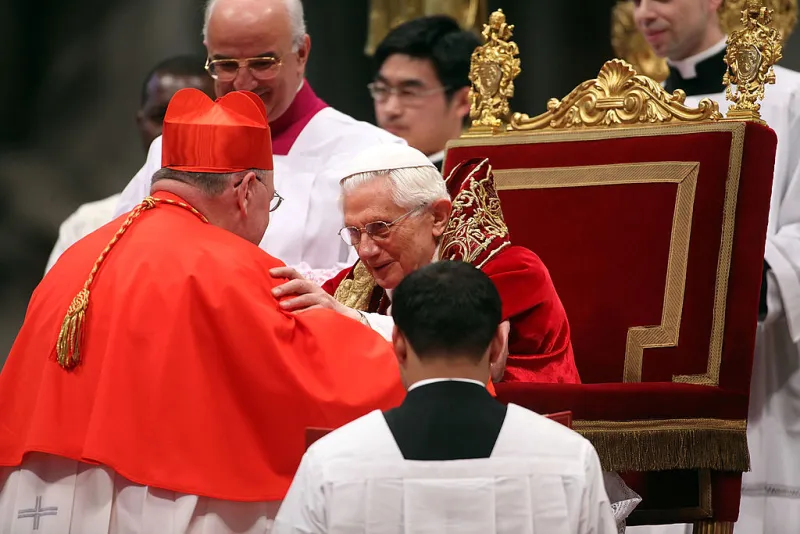
CNA Staff, Aug 16, 2024 / 16:59 pm (CNA).
The ongoing humanitarian catastrophe in Haiti that has seen gangs take over most of the country includes “an organized campaign against the Church,” with many Catholics suffering from kidnappings, theft, and aggression, according to a Haitian priest.
Father Baudelaire Martial, CSC, a priest from the Congregation of Holy Cross, spoke recently to the papal charity Aid to the Church in Need (ACN) on a visit to the group’s Königstein, Germany, headquarters. The Holy Cross fathers run eight parishes and several schools in Haiti, according to their website.
“The situation in Port-au-Prince [the capital city] is unacceptable, intolerable, and inconceivable. We live in very precarious conditions,” the priest told ACN.
“People are hungry, and there is a shortage of medication. Many doctors have been kidnapped. Some schools are still closed, teachers make very little money, there is no tourism, and the major tourist compound of Labadee, in the north, is closed.”
Martial said many parishes, including the city’s cathedral, have been forced to close due to the conflict.
“Other areas are more accessible, and so the faithful have taken to gathering in the parishes that are open. We also offer pastoral support online. The people’s faith remains alive. A large crowd attended Mass on Holy Thursday, for instance, despite the danger,” he said.
Ministering in the capital, Port-au-Prince, Martial said it is frightening to know that “when we leave the house, we never know if we’re coming back.” In the Foyer de l’Esperance, a social center that Martial runs for young people, a 12-year-old girl was murdered and another was violently attacked. Some schools have been forced to close and switch to online instruction, he said.
“I have sometimes had to throw myself to the ground to dodge bullets. We hear the sound of automatic weapons throughout the day. We are afraid, but we have to be present to support our people. We are suffering, but we are called to go beyond this suffering, towards hope,” he said.
“Some people are traumatized and have suffered serious injury or abuse, but as time goes by, the shock diminishes. Fear remains, but as a Church, we cannot surrender. We have to keep moving forward and bestow hope.”
Haiti’s agricultural sector also faces great difficulties, he said, with productive areas such as the rice paddies of the Artibonito region being taken by armed gangs. All of it is contributing to the people of Haiti — already the poorest country in the Western Hemisphere — getting “poorer by the day.”
The priority at the moment, Martial said, “for everyone, is security and putting food on the table.”
“I have the impression that there is an organized campaign against the Church, because we have seen so many priests and religious fall victim to these gangs,” Martial continued.
“In my community, a priest was kidnapped, and we had to pay a ransom for his release. Many dioceses and communities have suffered from theft and aggression. This is how they pressure the Church into silence, but our prophetic mission requires us to call out what is evil. We know that this is a risky position, but that is our cross, and we accept it. As a Church, we must have the faith and the strength to accompany our people and all those who suffer, and we will continue to do so, even at risk to our own lives.”
Ruled by oppressive regimes from the late 1950s until almost the 1990s, Haiti has long been plagued with serious natural disasters, including massive earthquakes in 2010 and 2021.
Many reports have emerged in recent years of priests and religious sisters being kidnapped by gangs and held for ransom. The country’s Catholic bishops have repeatedly appealed for an end to the violence.
The assassination of Haitian president Jovenel Moïse in July 2021 threw the country into further chaos, with Prime Minister Ariel Henry prevented from returning from an overseas trip due to the violence and eventually submitting his resignation. Haiti has had no sitting elected officials since January 2023.
In June, several hundred Kenyan police officers arrived in the country as part of a U.N.-mandated, multinational force seeking to restore peace to Haiti, the BBC reported, but so far the effort has not produced lasting change in the country’s security situation.
If you value the news and views Catholic World Report provides, please consider donating to support our efforts. Your contribution will help us continue to make CWR available to all readers worldwide for free, without a subscription. Thank you for your generosity!
Click here for more information on donating to CWR. Click here to sign up for our newsletter.





Leave a Reply